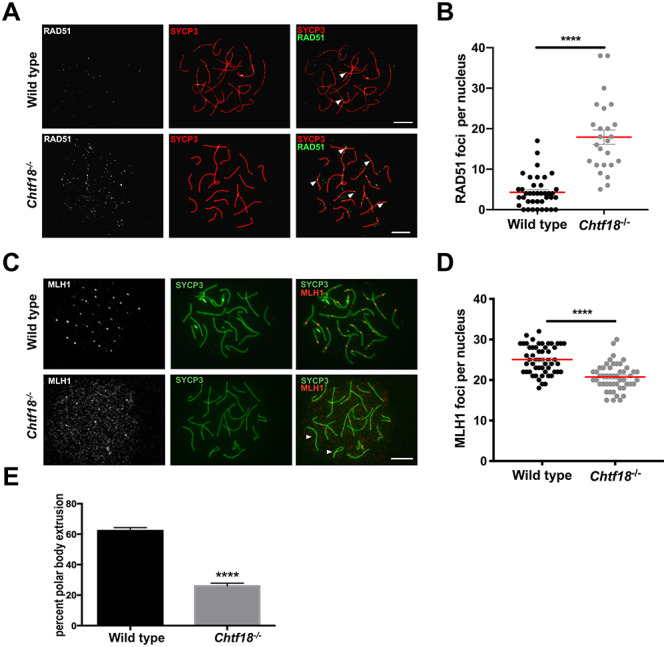Figure 6.

Absence of CHTF18 causes defective DSB repair and poor quality oocytes that fail to progress. (A) Meiotic chromosome spreads prepared from fetal oocytes of wild-type and Chtf18−/− embryos at E16.5 (early pachynema) were immunostained with SYCP3 antibody (synaptonemal complex, red) and RAD51 antibody (RAD51 foci, gray or green). Arrowheads indicate RAD51 foci. (B) Scatter plot depicting numbers of RAD51 foci per nucleus with the mean ± SEM; wild-type n = 39 nuclei (3 embryos); Chtf18−/−n = 25 nuclei (3 embryos); P < 0.0001**** by the unpaired t-test. (C) Meiotic chromosome spreads prepared from fetal oocytes of wild-type and Chtf18−/− embryos at E17.5 (pachynema) were immunostained with SYCP3 antibody (green) and MLH1 antibody (crossovers, gray or red). Arrowheads indicate homologs lacking MLH1 foci. Scale bars, 10 μm. (D) Scatter plot depicting numbers of MLH1 foci per nucleus (late pachytene) with the mean ± SEM; wild-type n = 54 nuclei (5 embryos); Chtf18−/−n = 50 nuclei (4 embryos); P < 0.0001**** by the unpaired t-test. (E) PBE was scored in wild-type and Chtf18−/− eggs at metaphase II. Values are percent progression as the mean ± SEM; wild-type n = 17 mice; Chtf18−/−n = 11; P < 0.0001**** by the unpaired t-test.
